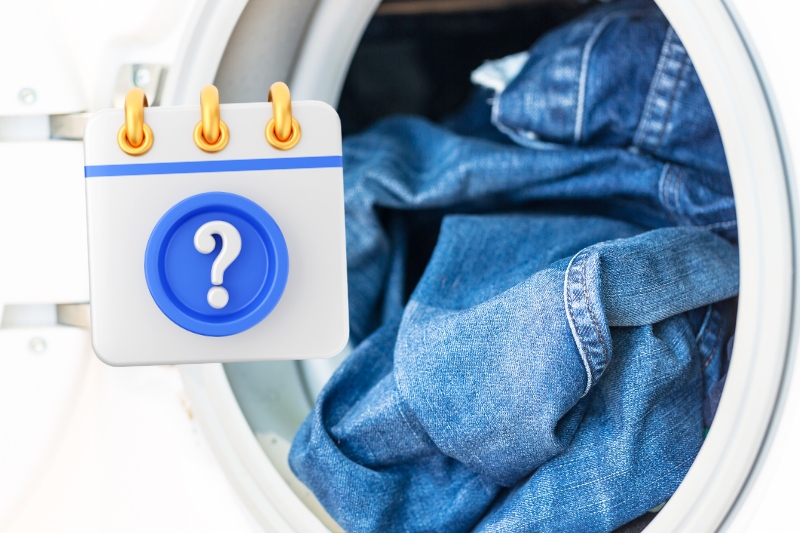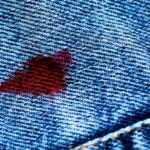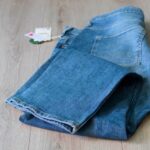Pretty much everyone owns a pair of jeans. They’re hardy, versatile trousers that can last for years if cared for properly. But that leads us to the question, how often should you wash jeans?
We answer this below, along with some tips on how to do it properly. Read on to find out.
How Often to Wash Jeans
The general consensus is that you can get about 10 wears out of a pair of jeans before you need to wash them.
Of course, this isn’t a hard and fast rule, as it should be based on whether they’re dirty or smelly instead.
Denim doesn’t take as kindly to washing as other fabrics, so it’s best to minimise its exposure.
You might remember that a few years ago, Levi’s CEO Chip Bergh stated he never washes his jeans.
Rather than saying you should never clean your jeans, he was making a point about how frequently we wash clothes without thinking about it.
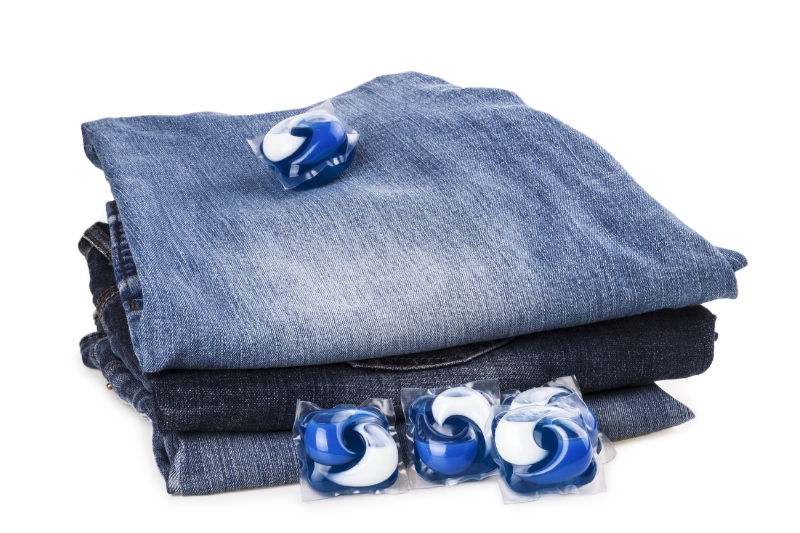
Like everything else we wear, jeans do need washing, but we can get away with doing it a lot less because of the material type.
First, denim is outerwear, and only makes contact with your bare legs.
Unlike your underwear or t-shirts, it’s therefore generally exposed to less sweat. Plus, any stains on the outside can easily be spot-cleaned with a cloth.
The only exception is raw denim, which isn’t pre-washed or pre-shrunk before being sold. This means it can shrink or stretch to fit your body and will likely lose some dye during wear (because it hasn’t been rinsed).
According to Levi’s, raw denim jeans should be washed three times a year.
Is It Okay to Wash Jeans Regularly?
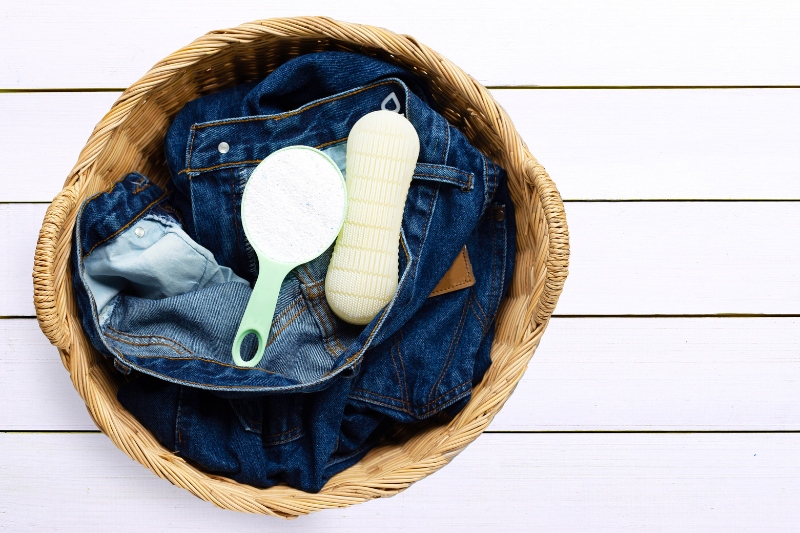
No fabric really enjoys being washed regularly. It can cause fading and wear, leading to your clothing lasting less time than it should.
While this is necessary for underwear or t-shirts, you can stretch washing time with jeans a bit longer.
Washing jeans regularly can lead to a few potential issues. First, the dye can fade, which is more obvious with indigo-wash jeans than pretty much any other clothing.
Second, washing causes the material to shrink. It’ll stretch when you put it on again, and this puts stress on the material. Over time, it’s therefore more likely to rip.
It’s worth noting, though, that cheaper high street brands will wear more quickly anyway. Try to avoid washing them less to make them last longer.
How to Keep Jeans Looking Fresh
If you want to follow the trend of washing jeans less, you’ll need to know a few tips to keep them looking (and smelling) nice.
You might have heard some of these before, but give them a try next time you’re thinking of washing your jeans:
1. Spot clean
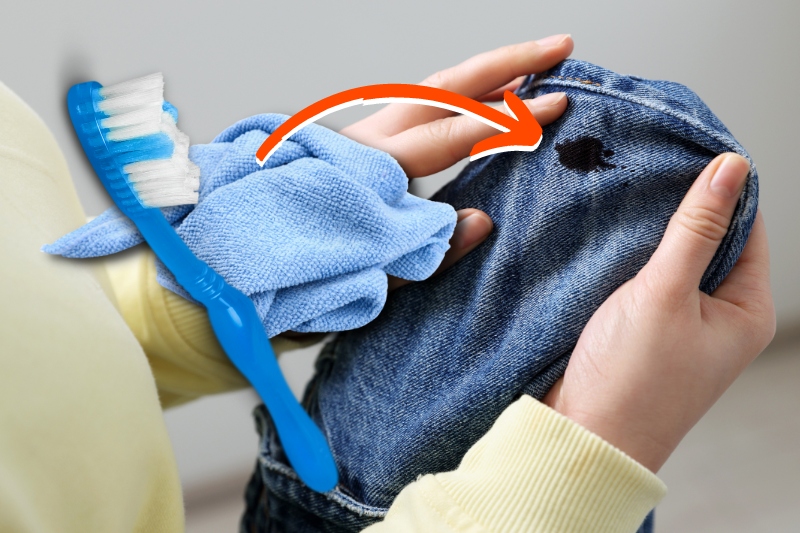
If you get a mark on your jeans, try to deal with it while it’s still fresh. You can spot clean with a damp cloth or toothbrush to lift the mark before it sets.
While some things might need more treatment (like red wine), you can lift pretty much anything with a bit of elbow grease.
2. Use a deodorising spray
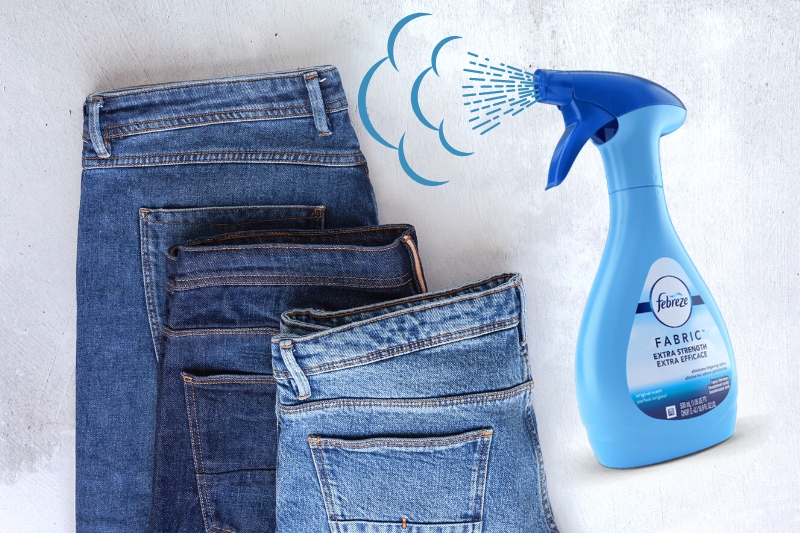
Febreze or any other fabric deodoriser will work fine to keep your jeans smelling fresh.
You could also put dryer sheets in your trouser drawer, so they come out smelling nice in the first place.
There are loads of denim-specific deodorisers on the market, but these aren’t necessary.
In fact, you could make your own by mixing your favourite essential oil with water and a bit of bicarbonate of soda. Spray it onto your jeans using an atomiser spray bottle and they’ll smell nice in minutes.
3. Let them air
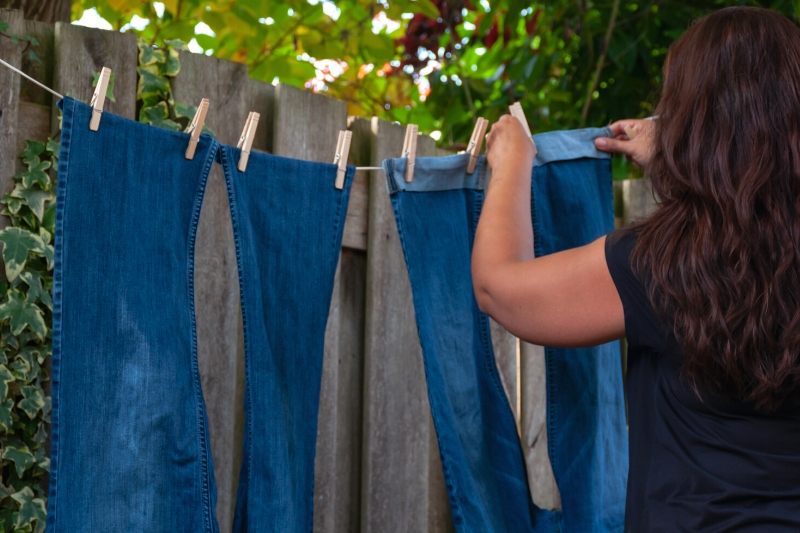
Fresh air can work wonders when it comes to whiffy jeans. Ideally, you’ll want to hang them outside in a light breeze, but hanging them by an open window will also do fine.
A bit of sunlight can help reduce odour too, but fresh air is better. Leave your jeans hanging in the breeze for an afternoon and they should smell a lot better when you next need to wear them.
Final Thoughts
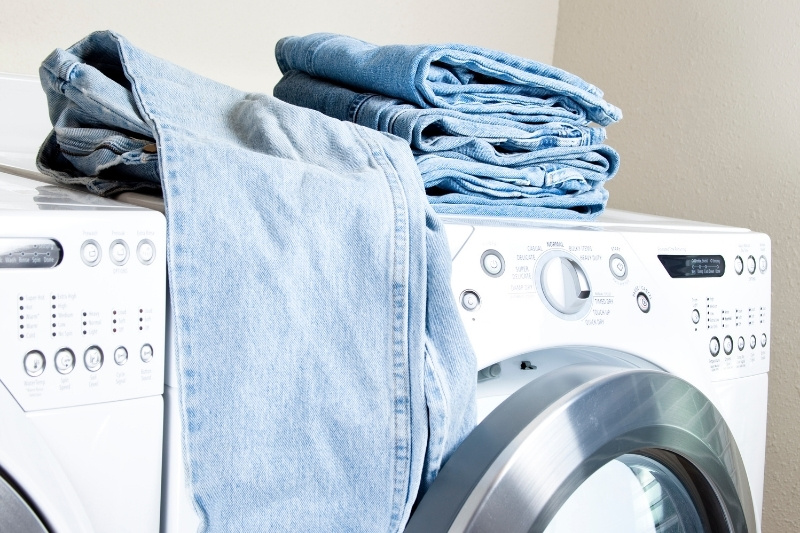
Generally, washing jeans should be a last resort. The impact of washing them is far more obvious than with other clothing, so try to keep it to a minimum.
Of course, don’t use this as an excuse to be walking around in dirty, smelly trousers! Use your judgement, and make sure you air them thoroughly between wears.

Jacob is a writer based in Wales, where he lives with his partner and two dogs. All his work is fuelled by extensive research and buckets of coffee.
